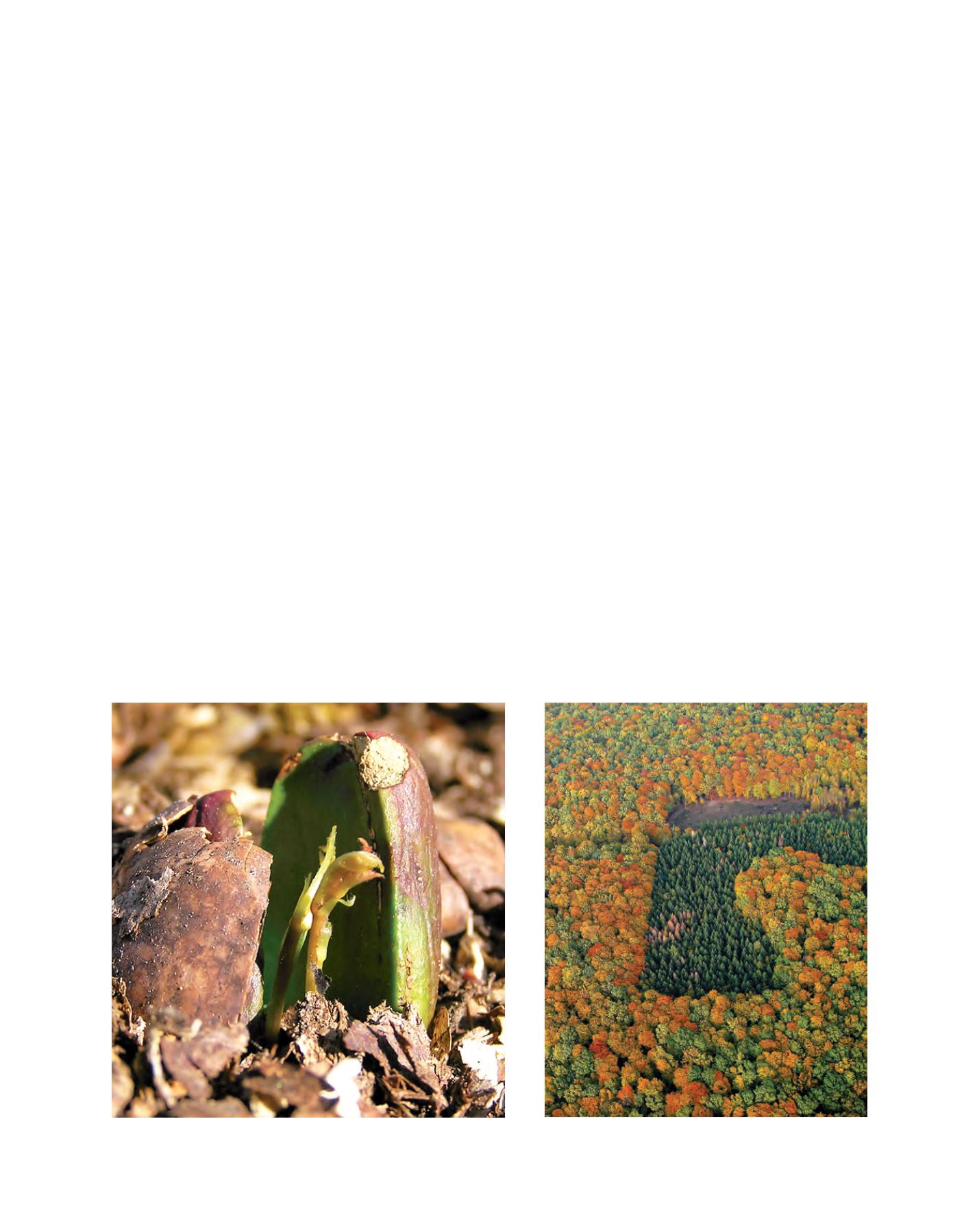

[
] 190
saving bank, seed bank and genetic bank of forest
tree species, to secure additional preconditions for
biological forest regeneration in case of crises, such
as situations in which natural restoration of forest
communities is not possible.
The fact that the overall area of forests in the
Republic of Croatia compared to 1996 increased by
203,077 hectares while the wood stock increased by
73.7 million cubic metres in the same period, speaks
in favour of the regeneration plan. Furthermore, the
Republic of Croatia can be proud of the fact that all
three existing species of the European large carni-
vores, bear, wolf and lynx, inhabit its forests, and for
these species, as well as for other natural resources,
management programmes have been drafted in coop-
eration with the local community.
In order to ensure conditions to finance sustainable
management of forests, the Republic of Croatia devel-
oped a ‘green tax’ twenty years ago. The system is based
on the payment of compensation for general benefits
of forests which are manifested through the benefits
provided by the forest ecosystems. General benefits of
forests are prescribed by law, and are as follows: soil
protection from erosion; balancing the water relations
in the landscape and flood prevention; water puri-
fication and supply of drinking water; reduction of
the greenhouse effect through carbon sequestration;
favourable impact on agricultural activity; purification
of polluted air; as well as a number of other benefits
that forests provide us with. The taxation mechanism
functions in such a way that each legal entity engaged
in economic activity is required to pay a fee amounting
season, asked for felling records, gave practical instructions on
seed sowing and acorn planting, prohibited harmful interven-
tions, and introduced fees for acorns and new provisions aimed
at forest protection and preservation. It also established the first
forest offices in the area.
Since extensive expertise is a precondition for the implementation
of high-quality sustainable management, the fact that forestry is one
of the oldest professions in the Republic of Croatia is no surprise.
Education of forest personnel was initiated as early as 1860 with the
establishment of the School for Forestry and Economy, the first of
its kind in this part of Europe, while the higher education of forest
personnel started in 1898 with the establishment of the Academy of
Forestry in Zagreb.
Today, the laws of the Republic of Croatia regulate the planting,
protection, utilization and disposal of forests as a natural resource,
with the purpose of maintaining biological diversity and ensuring
management based on principles of economic sustainability, social
responsibility and environmental acceptability. The laws prescribe
drafting of forest-management plans that specify conditions for
harmonious use of forests and forest-covered areas, interventions
in the area, required scope of planting and protection of forests,
possible utilization degree as well as terms and conditions for
fauna management. Laws of the Republic of Croatia prescribe that
the management plans for all natural resources, forest-manage-
ment plans among them, have to include all defined measures and
conditions for nature conservation and that they have to be drafted
in cooperation with local communities.
Conservation of forest genetic resources and seed storage for
the purpose of cultivation of planting material necessary for the
restoration of biological forests are of paramount importance for
the development of forestry and sustainable forest regeneration.
Consequently, the Republic of Croatia has established a seed
Image: Dubravko Stipan
č
ek
Photography from the ‘Forest through the Eyes of a Forester’ exhibition. (L) ‘Where are you, Earthlings?’; (R) ‘Puzzle’
Image: Željko Gubijan
















